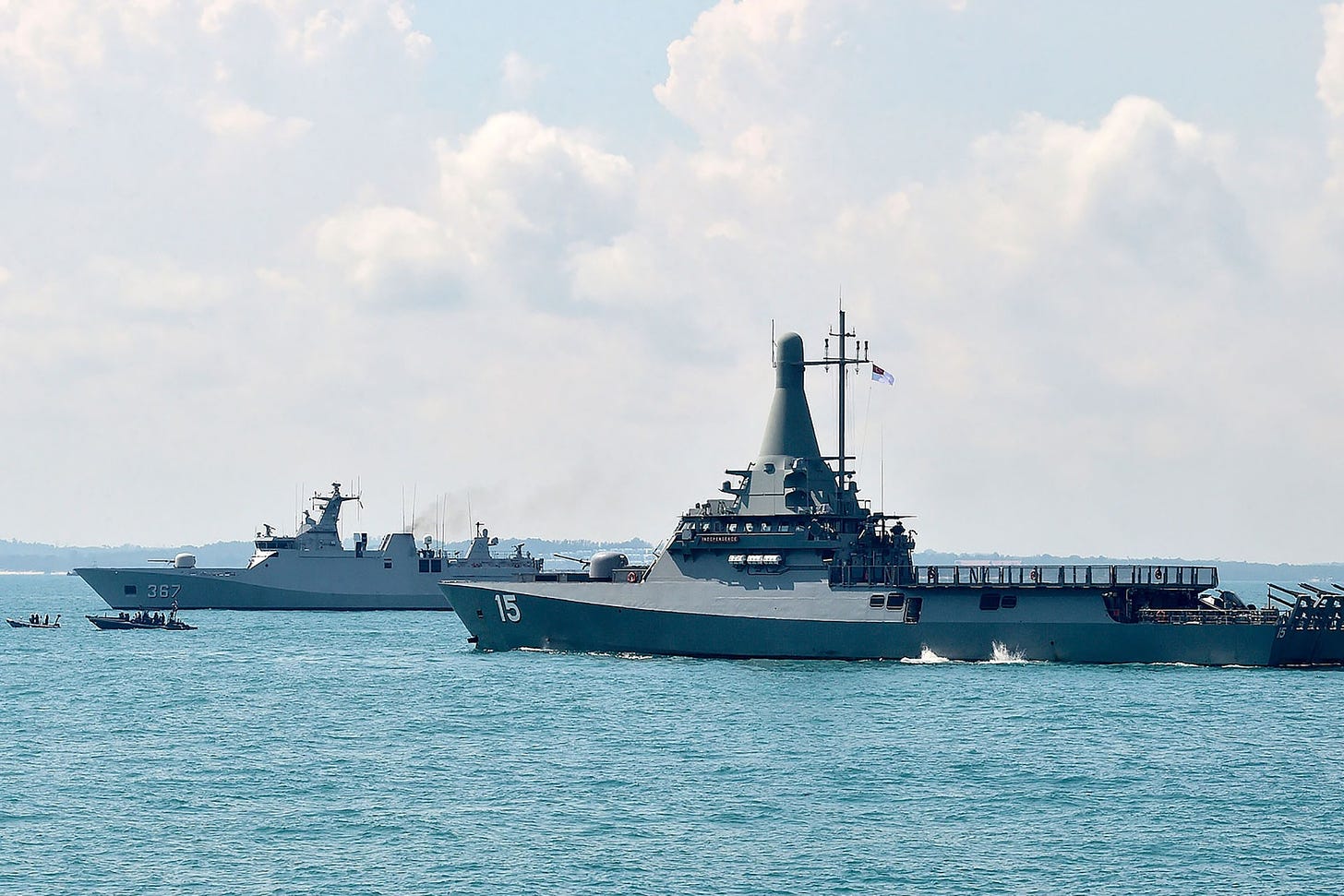[ad_1]

The announcement was thin, to put it mildly. After two days of talks involving both sides defense and foreign ministers, Japan and Indonesia agreed to cooperate in defense procurement. There were no specifics and the ministers spent more words condemning events in Myanmar than on their own relationship.
There was no indication of the type of weapons Japan might supply, or how it would help the development of Indonesia’s own armaments industry.
But the fact that the meeting happened, and its timing, were significant and clearly intended to send a message to China. From the Japanese side, ever-threatened by Chinese claims to the Senkaku Islands, known to the Chinese as the Diaoyus, and the region’s seas, it was nothing new. After all, Japan has recently lined up as a member of the so-called Quad, comprising the US, India, and Australia to challenge China’s aggressive posture and claims in South China and East China Seas.
For Indonesia on the other hand, the meeting and agreement represented a significant step to make an alignment, however modest, with a Quad member and the US’s closest Asian ally. Jakarta has been cautiously resisting Quad blandishments as the four nations seek to persuade the Association of Southeast Asian Nations as well as small countries to join them. The four Quad leaders two weeks ago agreed to supply a hefty combination of Japanese funding, Indian vaccine production, US biotech know-how and Australian logistics to supply a billion doses of Covid vaccine to the region, raising eyebrows and murmurs of “vaccine bribery” to counter Chinese influence.
It was perhaps doubly significant that the driving force from the Indonesian side was former general and defeated presidential candidate but now defense minister Prabowo Subianto. Although his 2019 campaign was heavily reliant on appeals to Islam, Prabowo (whose mother was Christian) would seem more at home in nationalist than Islamist circles. Prabowo remains a likely candidate in 2024 when the current president, Joko Widodo, leaves office due to term limits.
Sources in Jakarta say the 70-year-old Prabowo has emerged as a skilled defense minister and a key player in orienting Indonesia toward the United States despite having been banned from the US for many years as a human rights violator. The ban was lifted by the Trump administration and he was invited to visit the US by then-Defense Minister Mark Esper in October 2020.
In that same month the Trump administration agreed to ply the Indonesian military with weapons sales, approving US$2 billion to buy eight MV-22 Block C Osprey aircraft. Also included were 24 AE 1107C Rolls-Royce engines; 20 each of the AN/AAQ-27 forward-Looking infrared radars, AN/AAR-47 missile warning systems and AN/APR-39 radar warning receivers; and 20 each of the M-240-D 7.64mm machine guns and GAU-21 machine guns, among other gear.
Although Prabowo wanted a fleet of the controversial US-produced F35 advanced stealth fighter jets, the US instead in December indicated it is willing to sell Indonesia F-15 and F-18 fighters to replace its 1980s-vintage F16s.
The agreement also seems a small step away from Indonesia’s tradition of anon-alignment dating back to Sukarno and the 1955 Bandung Conference. Thus the anti-Communist domestic posture and pro-western economic policies of Suharto did not mean ending its friendly relationship with Vietnam even at the height of the war. Likewise, though by far largest ASEAN country it has made scant effort to push its views onto other members.
But it now has its own security to consider, for the first time since konfrontasi, with external not internal forces. Chinese threats to its fish and gas resources in the seas north of its Natuna islands have been apparent for some time and seen occasional tough responses from Jakarta. But for the longer term, Indonesia may feel more threatened by the bigger picture of China’s goals to dominate the whole South China Sea and the northern straits into it – the Taiwan and Luzon straits.
Indonesia is also uncomfortably aware that it controls in principle almost all the other straits linking the Pacific and Indian oceans through the South China, Java and Banda seas — the Melaka, Sunda, Lombok, Makassar and several lesser straits of its archipelago. It is also beginning to remember that India is as close geographically, and closer historically, than China.
There has been some gradual increase in Indo-Indonesian naval maritime cooperation over the past two to three years but it remains low-key. But for sure, Indonesia will not join the Quad, and China’s economic pull as Indonesia’s largest trading partner, buying up nearly 20 percent or exports, will continue to make Jakarta seem cautious to the point of ambivalence despite China’s direct incursions.
This article is among the stories we choose to make widely available. If you wish to get the full Asia Sentinel experience and access more exclusive content, please do subscribe to us.
[ad_2]
Source link